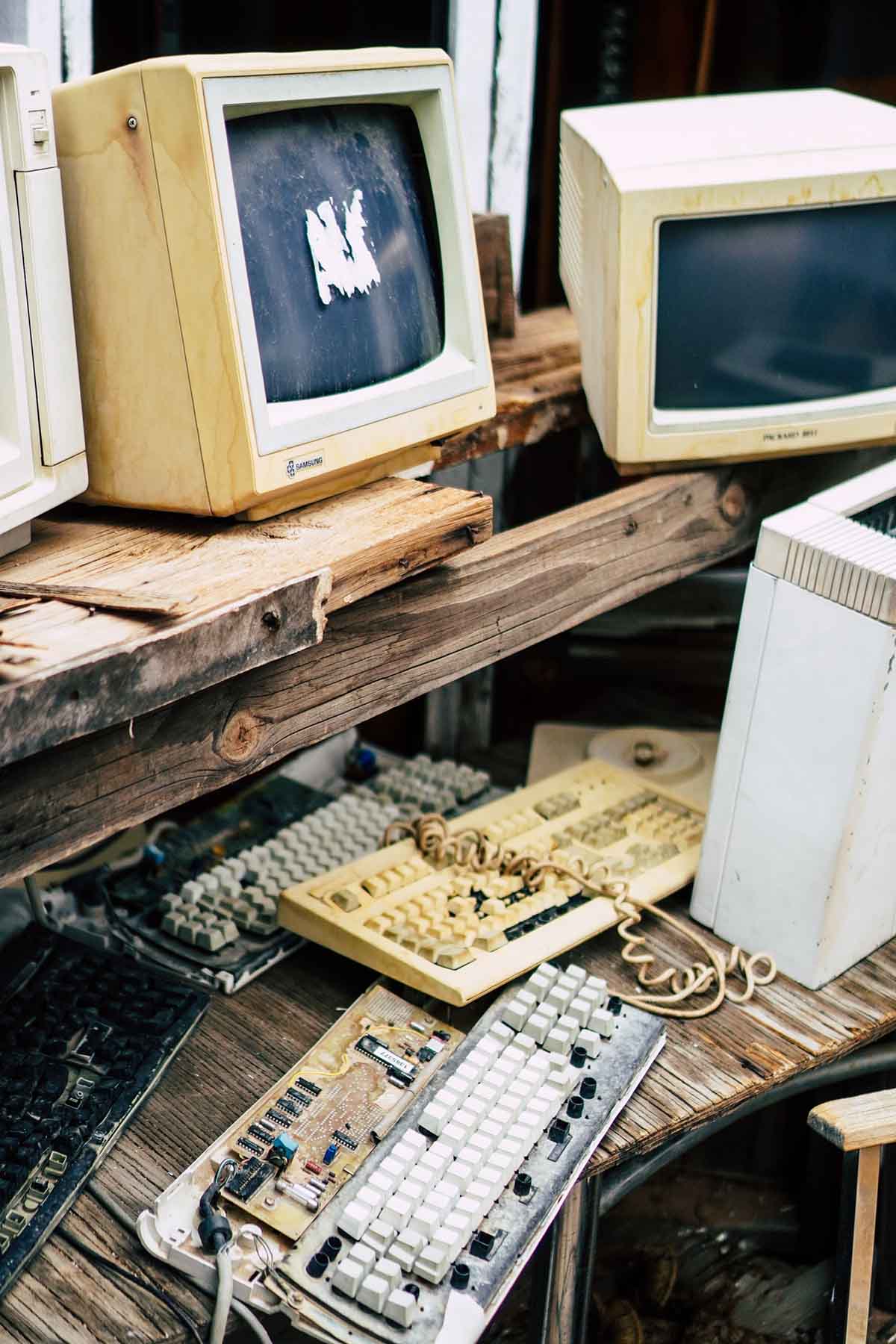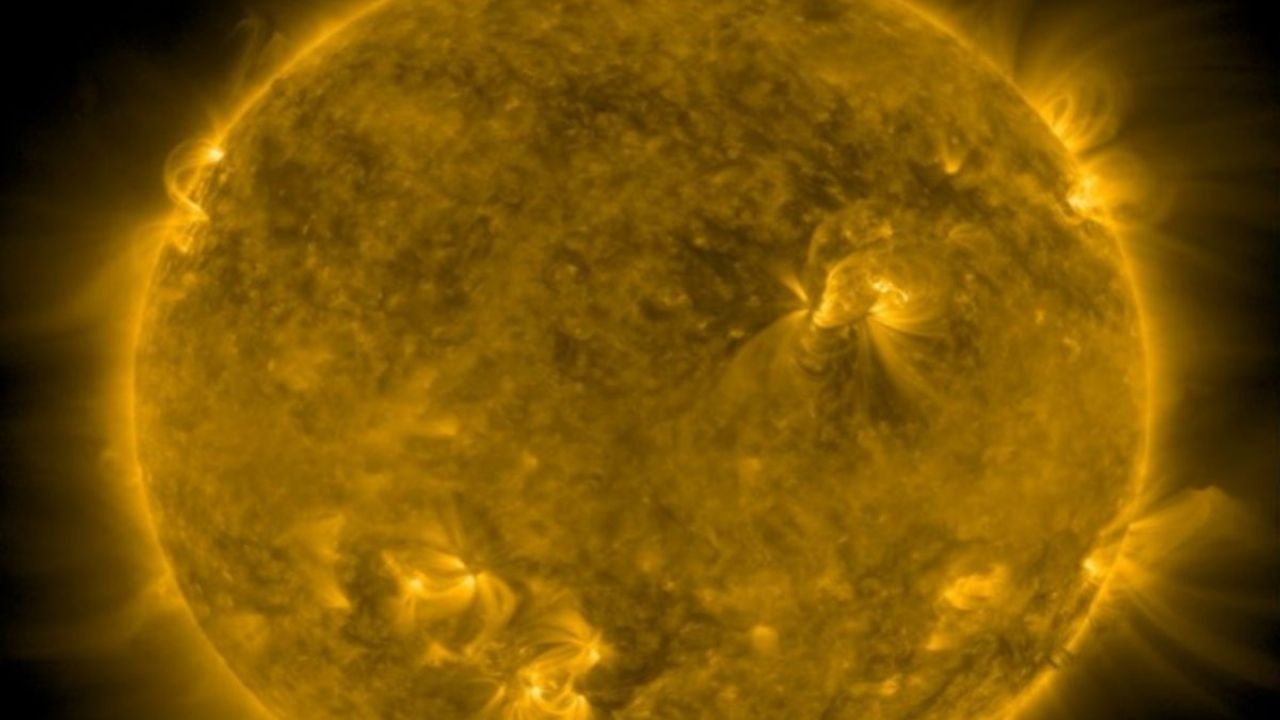
The dynamics of human life in society makes us look for technological devices that increasingly satisfy our needs. Let’s look at the development of humanity! In prehistory, stone, bone and wood instruments were created that made hunting and security possible, later came wedges, harpoons and the production and control of fire, which resulted in an improvement in the quality of life of our ancestors.
The relationship between technological development and need continues as a guiding thread in the history of humanity. If we entered a time tunnel, we would see the bow and arrow that helped in the territorial conquests and in the maintenance of subsistence, the equipment for agriculture that made possible the growth of wealth, the musical instruments, the wheel, the metallurgy, the electric light, the telegraph, telephone, radio, television, computer, cell phone, in short, an endless list.
And what is the result of this process of technological development? O e-waste!
Image: Daniel Salgado/Unsplash
What is e-waste?
The e-waste (electronic or technological waste) or Electronic Device Waste – RAEE are, as the name says, the waste from the disposal of electronic materials.
Currently the Brazil is the fifth largest producer of electronic waste of the world!
With the advancement of technology in the modern world, there is an excess of electronic waste being produced, which can cause several negative impacts to the environment.
According to The Global E-waste Monitor 2020 report, Brazil generated more than 2 million tons of e-waste in 2019, second only to China (10.1 million tons), the USA (6.9 million tons), India (3.2 million tons) and Japan (2.5 million tons). According to the report developed by the United Nations University, less than 3% was recycled in Brazil.
In Brazil, the correct destination of e-waste is provided for in the National Solid Waste Policy (Law 12.305/2010) and regulated by Federal Decree 10.240/2020.
However, is it possible to mitigate this process and profit from it? Yes, it is possible!
Below, I list two alternatives that have been gaining ground in Brazil, generating jobs and differentials.
Recycling and reuse: actions that can generate profits
With the significant increase in e-waste, cooperatives, companies and third sector entities have emerged that work with the recycling of existing components in discarded equipment. Many of these institutions dismantle the equipment and remove all the parts that can still be reused, in addition to filtering toxic waste and returning unusable products to the environment.
In this process, there are also companies that have become professionalized in reverse logistics of items that can no longer be marketed in accordance with Brazilian laws, increasing the value of the brand and collaborating to achieve the UN Sustainable Development goals — SDGs.
Finally, there are third sector entities that work to transform electronic waste into economic and socio-environmental benefits for needy communities. An initiative that is worth knowing is developed by the Instituto DESCARTE CORRETO, a Network of Communities that promotes access to professional qualification and insertion into the job market, using equipment and resources from e-waste and its transformation.
A cardboard robot that helps to reduce e-waste
An alternative to the use of e-waste is sustainable robotics. But how does it work?
Since the emergence of robotics, robots have been used for industrial purposes, in vehicle manufacturers and industries in general. In recent years, robotics has been gaining interest in different sectors every day – education is one of them.
Sustainable robotics enables the development of several concepts seen in practice, as it places teachers and students under real circumstances, from problem solving to the search for alternatives to new questions that arise all the time, thus providing the development of reasoning and logic. in the construction of algorithms and programs to control mechanisms.
Within this scenario, teachers and students seek inputs necessary to carry out projects for e-waste. From it, students build prototypes with scrap and discarded electronic components, creating sustainable actions that enable the preservation of the environment and life on the planet.
Faced with the reality of the production of e-waste and other urban waste, the profession of the future called garbage specialista waste manager capable of organizing the different types of waste in the urban space.
To know more
—



